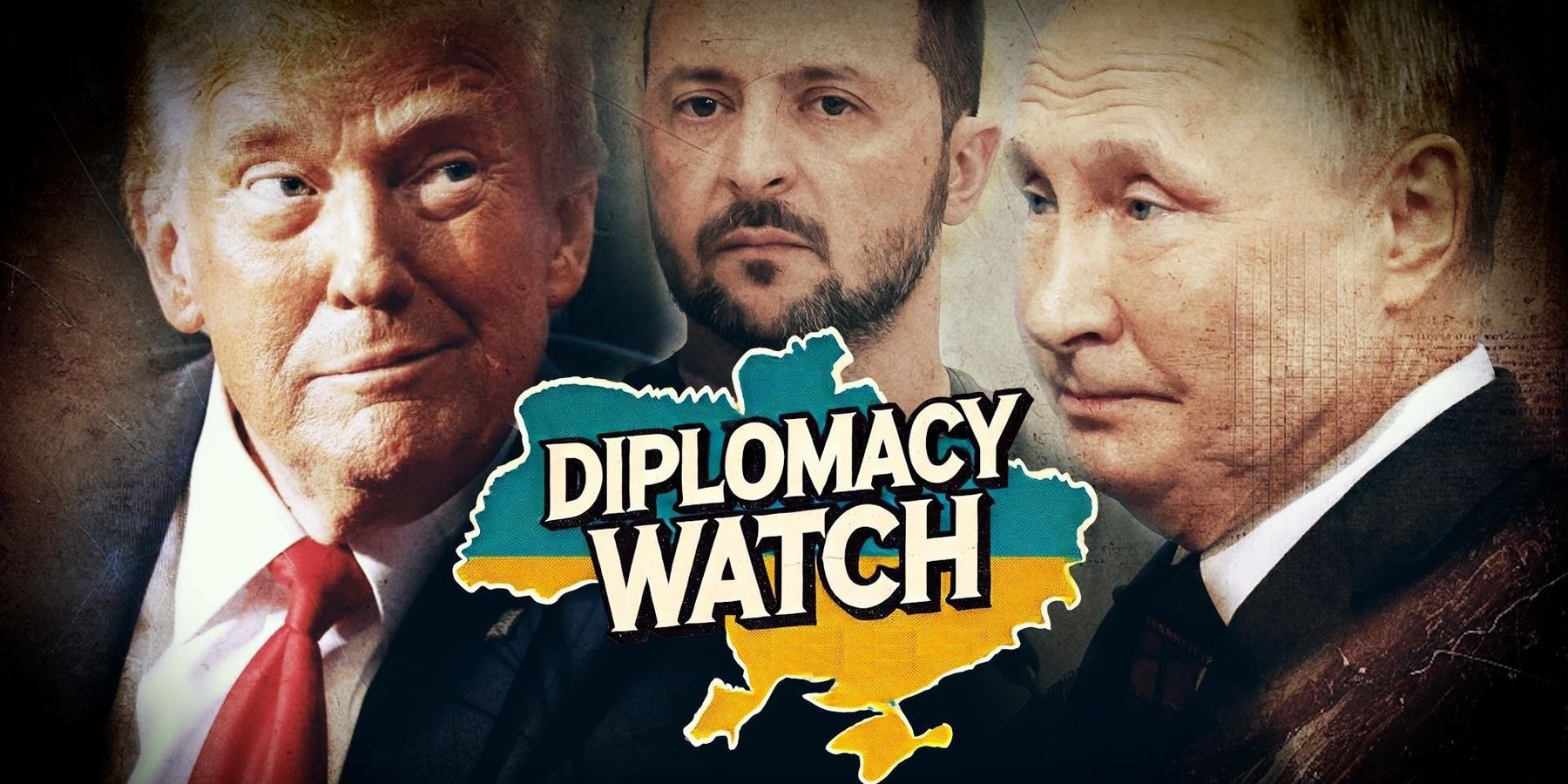Several members of Trump’s own party in Congress have expressed frustration with his language and tactics surrounding the Ukraine-Russia peace process.
The president was elected with a mandate to end the conflict, and he repeatedly promised to do so, even initially promising an end it within “24 hours.” However, some of his comments on Ukraine’s role in the conflict, calling President Volodymyr Zelenskyy a "dictator" who started the war, and musing whether the United States will continue to support Ukraine, has emboldened critics, including Republicans who were already skeptical of Trump’s insistence on moving quickly to a diplomatic strategy to end the war.
Republican senators also became outspoken after the United States voted against a United Nations resolution this week to condemn Russian aggression.
“Yesterday’s vote by the U.S. against the U.N. resolution was shameful,” said Sen. Susan Collins (R-Maine), referring to the United States’ vote against the U.N. resolution condemning Russian aggression.
“We all want this senseless war to end, but ending it on Russia’s terms would be a devastating mistake that plays right into Putin’s bloody hands,” said Sen. Lisa Murkowski (R-Alaska)
Sen. Todd Young (R-Ind.) piled on. “I can imagine this was a strategic vote in order to negotiate a hasty and expeditious outcome to a horrible war,” he said. “I agree that Russia is the aggressor. I’m acknowledging it, and so many members of Congress are acknowledging that.”
Sen. Lindsey Graham (R-S.C.), who has traveled extensively to Ukraine and has been in support of prolonging the fighting to ensure Ukrainian victory over Russia, said the U.N. vote had gone too far. “I think Russia is the aggressor. I don't care about the U.N. resolution,” he said.
Over in the House, Rep. Don Bacon (R-Neb.) criticized the vote. “An independent Ukraine aligned with the West is a game changer for the United States and Europe, so it is in our interest to ensure that Ukraine prevails,” he told C-SPAN on Thursday. “It’s a black-and-white issue: Putin invaded, he wants to restore his old borders from the Soviet Union.”
Indeed, Anatol Lieven, Director of the Quincy Institute’s Eurasia Program, wrote in an RS piece this week that Trump’s rhetoric this week might be unhelpful because “it allows opponents of Trump and enemies of the peace process to denounce (process) as ‘surrender’ to Russia motivated by personal and ideological amity between Trump and Putin, rather than a necessary step to end a destructive war, eliminate grave dangers to the world and costs to the U.S., and respect the will of a large majority of the international community.”
Zelenskyy and Trump are meeting Friday reportedly to sign a deal granting the United States access to Ukraine’s mineral mining market. It is unknown whether the deal will include explicit security guarantees.
In other Ukraine war news this week:
The New York Times reports that North Korea is sending an additional 3,000 troops to fight for Moscow in Ukraine. According to the Times, close to 11,000 North Koreans were previously fighting in Ukraine and Ukrainian-controlled Kursk, but they were withdrawn after suffering heavy losses.
UK Prime Minister Keir Starmer met with President Trump in the White House on Thursday. The Guardian reports that Starmer promised to raise the UK’s defense spending to 2.5% of its GDP by 2027 and 3% by 2030. President Trump also indicated that American troops likely wouldn’t be needed as part of a security deal in Ukraine but that the United States would “help” the UK if its forces were attacked during a peacekeeping mission.
According to Bloomberg, Turkey has indicated it is open to providing peacekeeping troops if needed in Ukraine. Anonymous sources indicated that Turkish President Recep Erdogan agreed to lend soldiers from his army in separate meetings with Zelenskyy and Russian Foreign Minister Sergei Lavrov. France and the United Kingdom have also said they would provide Ukraine troops as part of a security package.
The Washington Post reports on Ukraine’s increasingly dire birth rates and population loss, with the population dropping from around 50 million in 1991 to around 36 million (including Russian-occupied territory) today.
The decrease is primarily due to a low birth rate, war casualties, and Ukrainians fleeing the country. The U.N. Population Fund reported in 2024 that the Ukrainian birth rate had dipped below 1.0 from 2.1 in 2001. The Post says that if these trends aren't reversed, Ukraine’s population will drop to around 25 million by 2050 and 15 million by 2100.
There were no State Department press briefings this week
- Why this 'megaphone diplomacy' isn’t helpful ›
- Ukraine’s best hope for peace looks a lot like Donald Trump ›
- Trump and the viable road to peace in Ukraine | Responsible Statecraft ›
















